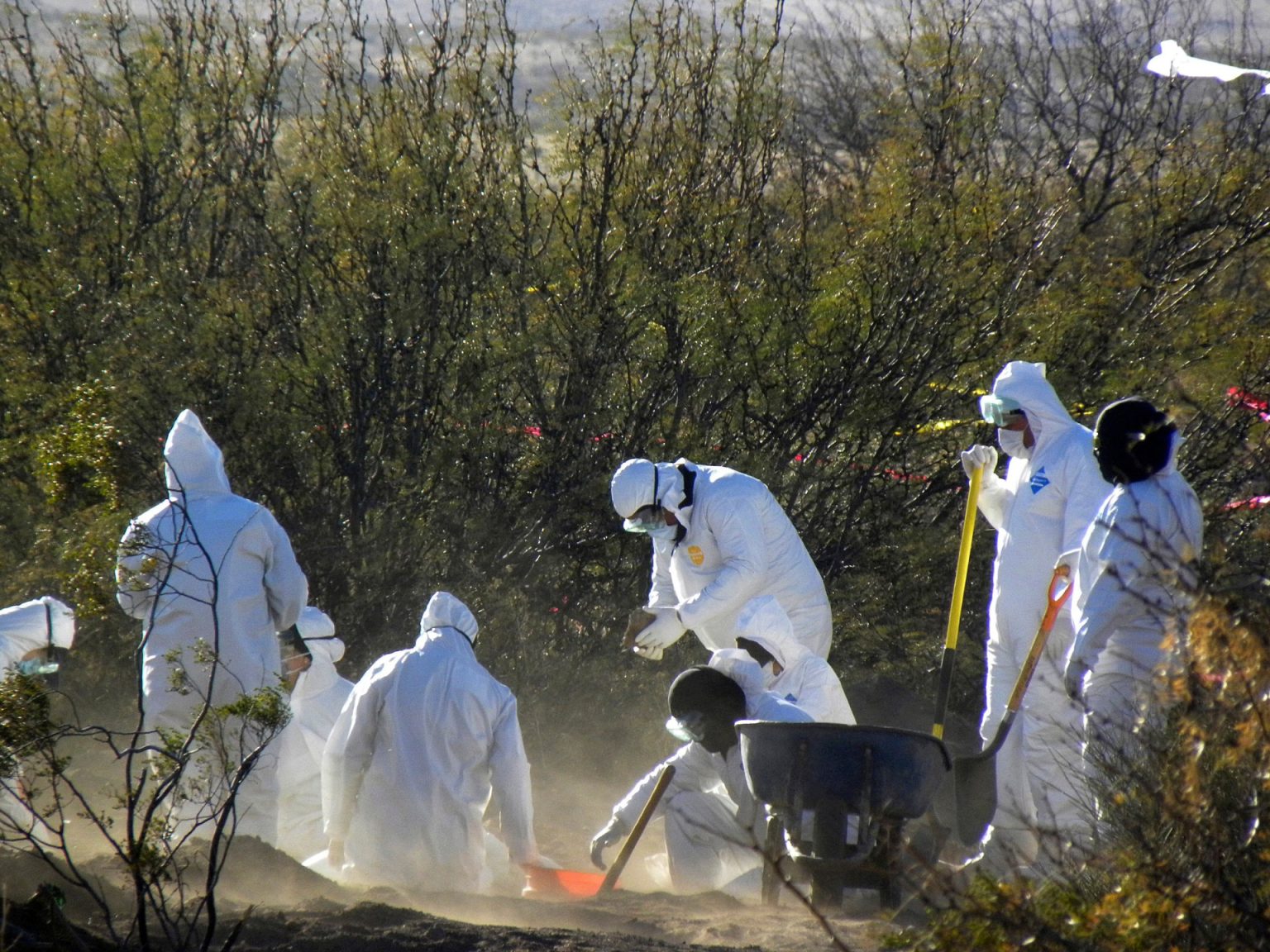Authorities in the northern border state of Chihuahua in Mexico have discovered twelve bodies in clandestine graves in the town of Ascension, located about 180km west of Ciudad Juarez. The skeletal remains were found in eleven separate graves after investigators began exploring the desolate area on December 18. The search was expanded, leading to the discovery of multiple shallow pits where the bodies had been dumped. The remains were subsequently taken to state forensic laboratories for potential identification and to determine the causes of death.
Chihuahua has been plagued by violence associated with organized crime, particularly as a key route for drug trafficking and migrant smuggling to the United States. Official figures show that the state has reported 3,927 missing persons since 1952, highlighting the ongoing issue of disappearances in the region. In Mexico as a whole, an estimated 120,000 people are considered missing, a stark reflection of the country’s long-standing violence and instability. The relatives of those missing individuals often take matters into their own hands, forming volunteer search groups that venture into the desert to look for clandestine graves where their loved ones may have been buried.
The discovery of the twelve bodies in Chihuahua adds to the grim statistics of those who have gone missing in the region, further underscoring the challenges faced by families seeking closure and justice. With the remains taken to state forensic laboratories for potential identification, there is hope that some families may finally receive answers about the fate of their missing loved ones. However, the long history of violence and crime in Chihuahua, combined with the prevalence of disappearances throughout Mexico, continues to cast a shadow over efforts to address the issue and bring perpetrators to justice.
The prevalence of clandestine graves in Chihuahua serves as a stark reminder of the grim realities facing many communities in Mexico, where violence and crime have taken a heavy toll on families and society as a whole. The discovery of the twelve bodies in Ascension highlights the ongoing challenges in addressing disappearances and providing closure for the families of those missing. As authorities work to identify the remains and determine the circumstances surrounding the deaths, it becomes apparent that the road to justice is long and complex in a region marred by years of violence and instability.
While the exact circumstances surrounding the discovery of the clandestine graves in Chihuahua remain unclear, the involvement of authorities and potential collaboration with volunteer search groups underscores the importance of coordinated efforts to address the issue of disappearances in the region. The search for missing persons is often carried out by families and volunteers who take on the daunting task of scouring remote areas in search of answers. The identification and investigation of the skeletal remains found in Ascension represent a significant step in this ongoing process, offering a glimmer of hope to families still searching for their loved ones amidst the turmoil and uncertainty that has plagued the region for years.
As Chihuahua grapples with the aftermath of the discovery of twelve bodies in clandestine graves, the state prosecutor’s office continues its efforts to identify the remains and shed light on the circumstances surrounding the deaths. The involvement of forensic laboratories in analyzing the skeletal remains underscores the importance of using scientific methods to provide closure and justice for the families of those missing. As the region confronts the legacy of violence and crime that has cast a shadow over communities for years, the discovery of the graves in Ascension serves as a sobering reminder of the challenges that lie ahead in addressing the issue of disappearances in Mexico.













